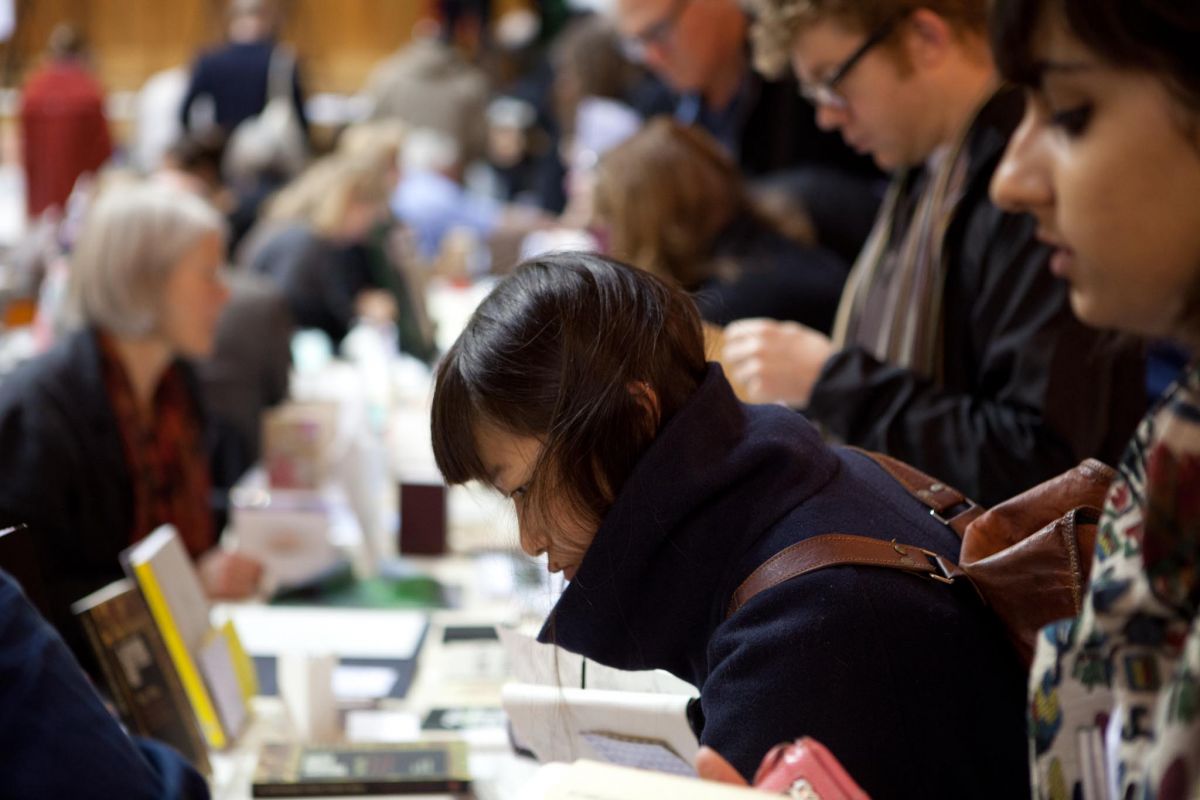You are viewing your 1 free article this month. Login to read more articles.
Shin launches Ignota Books and feminist festival
Publishing professional Sarah Shin (pictured below) is launching a new festival and press, both rooted in the use of magic and myth-making as tools to reconsider the world in which we live and to help create new narratives that better represent it.
Shin says both projects are born out of the belief that we are living in a time of "intense historical confusion" in which "our collectively hallucinated ‘reality’ has become more precarious than ever". Citing the current frenzied political and cultural climate, Shin argues that "those seriously engaged in the production of culture must attend to the creation of new narratives that enable a habitable and sustainable future, as the old narratives (such as financial capitalism) glitch and fail around us."

Attempting to create a publishing space that can make these new narratives possible, Ignota Books is the brainchild of Shin and co-founder Ben Vickers, and intends to publish titles at the intersection between technology, storytelling and magic. Shin, who also co-founded feminist publisher Silver Press last year, and is communications director for Verso, says Ignota Books hopes to provide transformative tools for the practice of everyday life through a list that draws from emergent, contemporary and ancient systems of knowledge.
On Halloween, the press will début with Spells: 21st Century Occult Poetry, a collection of 36 poems that explore themes of justice in relation to the transformative power of the occult, and in November the Ignota Diary (softback, £14.99), intended as a mindfulness tool for the practice of everyday life.
In January 2019, Ignota will publish The White Paper by Satoshi Nakamoto, the name used by the unknown developer of crypto-currency bitcoin, described by Shin as being as "technologically revolutionary as the invention of the printing press". The book charts the cultural history of encryption and coincides with the 10th anniversary of the release of the blockchain currency. In May 2019, Ignota will publish a reworking of 12th-century abbess Hildegard von Bingen’s Lingua Ignota by Huw Lemmey. Spells, The White Paper and Lingua Ignota are all B-format paperbacks, priced £12.99 and distributed by Inpress and NBN International.
Meanwhile, in conjunction with the Barbican, feminist literary festival New Suns will "explore the potential of myths to be the matrix in which radical new visions can be discovered to create a more habitable 21st century". Recent Women’s March protests, the #MeToo movement and global struggles for bodily autonomy have created an "explosion of energy", says Shin, and this has raised questions around power, justice and solidarity. The festival intends to reignite a long-standing line of feminist enquiry through discussions about feminist myth-making.

"It felt urgent to me to highlight the feminist work in the realm of mythology in this current moment, when reactionary and fascistic forces are instrumentalising their power to stoke misogynistic and reactionary sentiments," says Shin. "And the mythos [signifying a tale, or a set of beliefs or assumptions] that continues to dominate the world around us remains overwhelmingly patriarchal. We saw its power in the [Supreme Court nominee] Brett Kavanaugh [sexual harassment] case, which rested on the legal codification of misogynistic myths. I place New Suns within a lineage of feminist speculative thinking that asks: ‘What new stories and counter-narratives can be invented to build our feminist futures?’"
Featuring speakers including Sophie Mackintosh, Preti Taneja and Pat Cadigan, the festival will discuss topics such as the worlds of Ursula K Le Guin, power and disobedient women, and sex workers’ rights. Also, in the spirit of the 1980s International Feminist Book Fairs, more than 30 publishers—including Penguin Random House, Hachette, Fitzcarraldo Editions, Verso and Serpent’s Tail—will host stalls and book signings in free-to-access spaces at the Barbican.
The title "New Suns" is inspired by African-American science fiction author Octavia Butler’s epigraph to her final, unfinished novel: "There is nothing new under the sun, but there are new suns." Taking place on Saturday 3rd November, the festival is part of the Barbican’s Art of Change season, which explores how the arts respond to, reflect and potentially affect change in the social and political landscape.
Tickets to the festival are available from the Barbican’s website.










